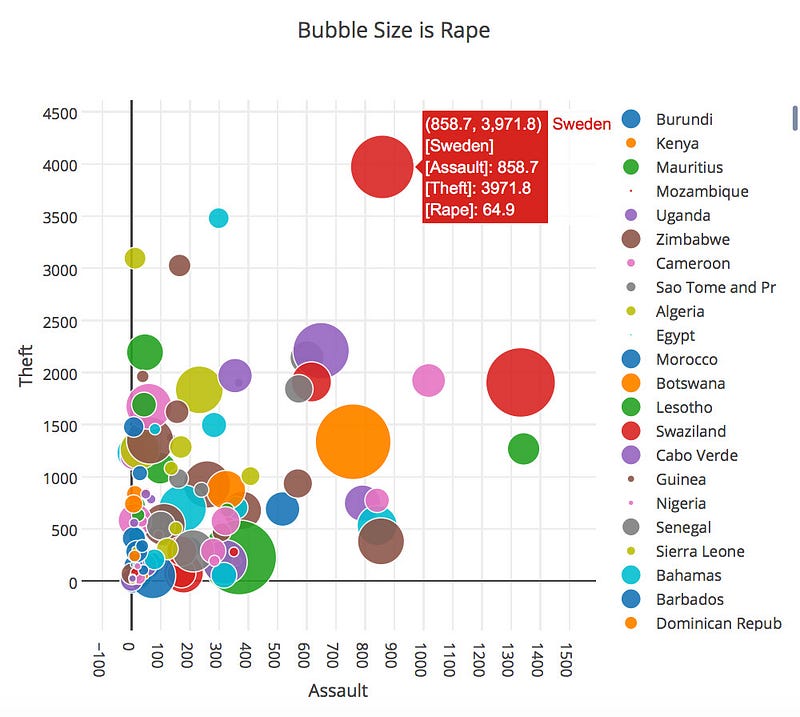Data Telling A Story of a World of Crime

Data Telling A Story of a World of Crime
We have pledged to base our future presentations on evidence and data. So, I’m going to surprise you a little with some crime statistics [here] …
Which country around the world has a poor crime record for assaults and theft? It is going to surprise you … it is Sweden [Link], with the UK not doing well too:

In fact, when you bring other crimes in, such as rape, we find out that Sweden does not do well in terms of criminal convictions [here]:

Which country has a poor track record on robbery and burglary?
It is … Belgium [here]:

For motor vehicle and private car thefts, which county has the worst track record?
It’s … Bahamas [here]:

Which would be a great place for a burglar to be based, with high burglary rates and low numbers of police?
It’s New Zealand [here]. We thus look in the bottom-right hand corner of police personnel against burglary rates:

Which country detains many people, but convicts relatively few?
You may say somewhere like North Korea or Russian … but it’s the USA [here]:

If want to analyse your own, it is here:
and for a bubble plot [here].
Conclusions
In a world full of open source data, go ahead and make sense of it, and use it to provide evidence. In this information age the top skills will be in analysing complex problems, so go ahead, and get that grey matter into gear, and get analysing data, and make sense of this complex work.